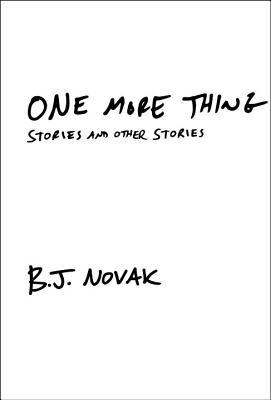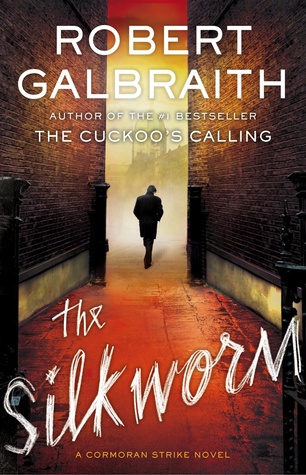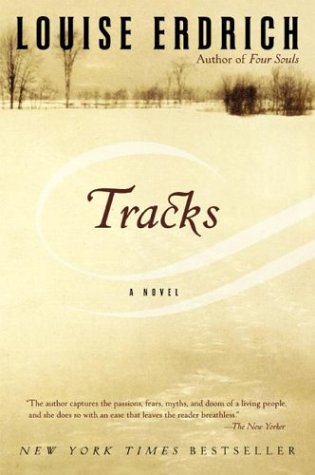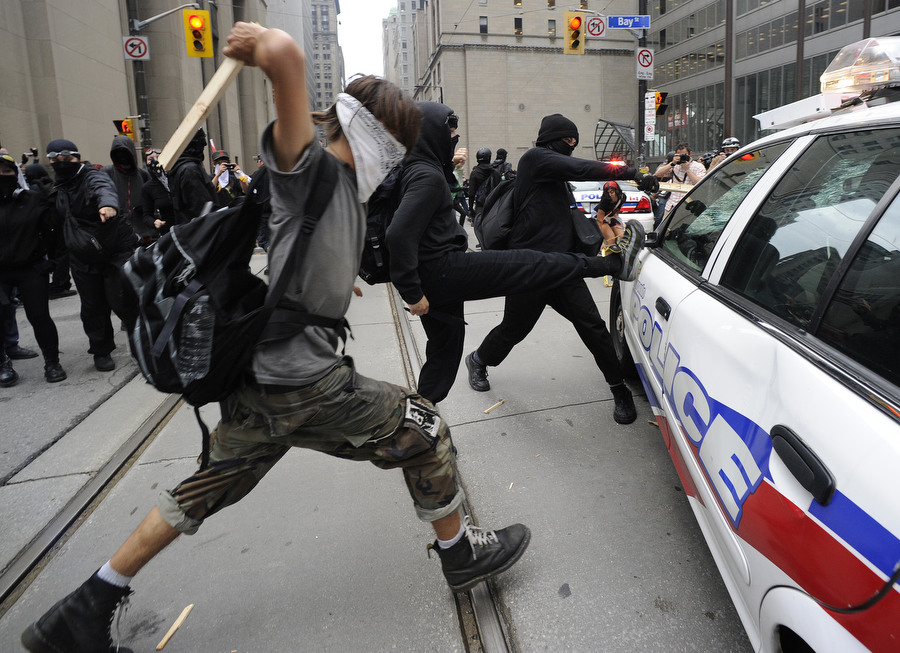When fascism comes to America, it will not be in brown and black shirts. It will not be with jackboots. It will be Nike sneakers and smiley shirts. Smiley-smiley.
~George Carlin
I was given Liberal Fascism for Christmas and told that it is a "must read", so I read it and here's the short review:
Tired of having liberals hurl the term "fascist" at every conservative that they disagree with, author Jonah Goldberg makes the case that it is (American) liberals who can draw a straight line from their modern agenda (and methods) to the 19th Century Progressive Movement in Europe; the same movement from which the Communism of Stalin, the Fascism of Mussolini, and the Nazism of Hitler drew their own inspiration. So, "I'm rubber, you're glue…" and anyone who uses the f-word against conservatives is either a liar or self-deluded (because if anyone is a fascist around here…). There's a childish and partisan tone in this book, but if there's any important takeaway, it's that each of the following images is equally despicable:


There is a lot of history in this book, which I found to be interesting to varying degrees: Huey Long and Martin Heidegger make me sleepy, but the Weather Underground and Margaret Sanger were relevant enough to today's political climate for me to have appreciated a re-examination of their legacies (but with 50+ pages of footnotes, I don't know who would be diligent enough to fact check Goldberg's sources). Also, as Liberal Fascism was written in 2007, it already feels dated: Goldberg must have assumed that Hillary Clinton was going to cakewalk to the Democratic nomination for the 2008 presidential election because he spent a whole chapter taking her down (whereas Barack Obama got one small mention in a section about the racist roots of Chicago's community organisers). And I was uncomfortable with Goldberg's rhetorical style, with him constantly writing, "Reasonable people would agree…A fair-minded person would acknowledge…Of course I'm not saying that [insert liberal person or program] is displaying the kind of maniacal, racist fascism of a Hitler or a Himmler, but [he's/it's] fascist nonetheless...".
I still don't know what I in particular was supposed to gain from reading Liberal Fascism, but here's what I did learn: "fascism" does not mean the same thing as "Nazism"; but since that's the inference when we use the word "fascist" to discredit our adversaries, can't we agree to just stop using it?

So, I guess this is where the long review begins. The first problem that I had with this book came right at the beginning: In the introduction, Goldberg says that even scholars disagree on an actual definition for fascism (but all do agree that it is a left-wing movement, so using it as an anti-conservative slur is never appropriate), so he makes up his own definition, which, obviously, seemed jury-rigged to define the kind of modern American progressive liberal that Goldberg is attempting to call out:
Fascism is a religion of the state. It assumes the organic unity of the body politic and longs for a national leader attuned to the will of the people. It is totalitarian in that it views everything as political and holds that any action by the state is justified to achieve the common good. It takes responsibility for all aspects of life, including our health and well-being, and seeks to impose uniformity of thought and action, whether by force or through regulation and social pressure. Everything, including the economy and religion, must be aligned with its objectives. Any rival identity is part of the "problem" and therefore defined as the enemy. I will argue that contemporary American liberalism embodies all of these aspects of fascism.
And the meanness that this book can stoop to came early also, as in this comment on the world's socialists' surprising support of entering WWI:
Even in the United States the vast majority of socialists and progressives supported American intervention with a bloodlust that would embarrass their heirs today -- if their heirs actually took the time to learn the history of their own movement.
I'd imagine that progressives think of the New Deal as a great achievement, but Goldberg is quick to point out that its pointy edges have been sanded off:
Under the New Deal, government goons smashed down doors to impose domestic policies. G-Men were treated like demigods, even as they spied on dissidents. Captains of industry wrote the rules by which they were governed. FDR secretly taped his conversations, used the postal service to punish his enemies, lied repeatedly to maneuver the United States into war, and undermined Congress' war-making powers at several turns.
Goldberg's abiding point is that, because liberals were able to push through their progressive agendas during the great wars (under Wilson and FDR) unopposed, their great thinkers, like William James, spoke of needing "moral equivalents of war" and that is why, "the left has looked to everything from environmentalism and global warming to public health and 'diversity' as war equivalents to cajole the public into expert-driven unity". The point is made (and I have no opinion as to its truth) that JFK was a leader straight from Mussolini's mold: handsome and virile; his "ask not what your country can do for you -- ask what you can do for your country" speech was a progressive call to national unity (and therefore, national submission to benevolent overseers); the Peace Corps was a paramilitary force intended to inculcate youth in progressive ideals; the Bay of Pigs and Cuban Missile Crisis were both engineered by Kennedy to produce the "moral equivalence of war" (even if he was squeamish about outright declaring war), in order to further remove decision-making power from the citizens' hands.
And again, liberals are not only wrong when they call conservatives fascist, but they should understand their own roots in order to learn from them:
The problems in liberalism today reside in liberalism today. The relevance of the past is that unlike the conservative who has wrestled with his history to make sure he does not repeat it, liberals see no need to do anything of the sort. And so, armed with the complete confidence in their own good intentions, they happily go marching past boundaries we should stay well clear of. They reinvent ideological constructs we've seen before in earlier times, unaware of their pitfalls, blithely confident that the good guys could never say or do anything "fascist" because fascism is by definition anything not desirable. And liberalism is nothing if not the pursuit of the desirable.
A little mean-spirited, no? A little, "I'm rubber, you're glue..."
But, like I said, there were ideas that I found interesting, like the reinvention of the Weather Underground from terrorists to hippy idealists. And I liked this section because it fit with my idea of the protagonist in Russell Banks' The Darling (an unapologetic agitator who had spent the 60s trying to bring down the bourgeois conformity of her parents' generation; through any means available). Which makes me think I should read more Russell Banks: his Cloudsplitter looks like an important in-depth picture of John Brown (who is of interest to me after reading The Good Lord Bird) and I keep coming across a recommendation for Continental Drift (even if I'm trying to avoid reading more books from The End of Your Life Book Club). And by the same token, the Black Panthers seem to have become sanitised through the lens of history (even if Michael Chabon painted them as murderous in Telegraph Avenue).
But I was even more interested in how so many of the modern liberal ideas (welfare state, minimum wage, abortion rights) had their roots in racist policies: Goldberg argues that the minimum wage was brought in to price blacks out of the work force ("If I must pay two dollars an hour, I'm not hiring you...") and welfare was intended to break up black families, and hopefully, stop them from reproducing. On this point, Goldberg says (and this statement doesn't have a footnote), "Today black children are less likely to be raised by two parents than they were during the era of slavery". I don't know if that's true or if it's significant of anything, but there it is. As for Margaret Sanger, I knew that she was the founder of Planned Parenthood (so, therefore, a liberal hero), but I didn't know that she was a racist member of eugenics societies and an elbow-rubber of the KKK; that she was vehemently anti-abortion, but when she decided that she would never get the necessary support to sterilise undesirable reproducers (read:poor black people), she made it her mission to distribute birth control to them, and even today, Planned Parenthood have most of their offices in poor black neighbourhoods. (And Goldberg referenced Freakonomics here, pointing out that when the authors made the connection between 30 million abortions through the 70s-90s and the drastic drop in crime levels, they were careful not to point out that these would have mostly been black women having these abortions.)
What I was most interested in was how fascism relates to Canada, and although Goldberg doesn't give any of the history of fascism in Canada (although he does mention our avidity for eugenics and the sterilisation of undesirable reproducers), it's an interesting lens through which to view Pierre Trudeau, and even more pressingly, his son, Justin; our likely next leader. Pierre, of course, had that charismatic and virile Great Man persona (although, for the life of me, I don't understand the man's famous sex appeal), and he nationalised corporations, expressed anti-Semitic views, spent the country into debt, hobnobbed with Fidel Castro, and invoked the War Measures Act to suspend civil liberties during the FLQ crisis. I'm sure more parallels can be made, but that's a nice list that, by Goldberg's definition, would qualify PET as a bona fide fascist -- but just imagine the uproar by the Canadian left if that was stated publicly as a matter of fact? Just like in the U.S., it's every day here that I see the word "fascist" used against conservatives and against PM Harper, so the big picture of this book was interesting to me. As for Justin, he seems to have all the same ideas as dear old Dad, and famously, when he was asked if there's a nation he admires, Justin answered, "There's a level of admiration I actually have for China. Their basic dictatorship is actually allowing them to turn their economy around on a dime." And I actually have some sympathy for his premise, if not his actual words: It is very frustrating to see the parliamentary system block reforms or send bills off to endless committees and inquiries; the ability to enact an idea quickly would probably be the only upside of a "basic dictatorship" -- or would it? Twice in Liberal Fascism, Goldberg refers to Brave New World as the logical outcome of the progressives' agenda, and as he says both times, "What would be so wrong with a benevolent dictatorship that takes care of our every need and leaves us free to pursue our own visions of happiness?" I need to reread Brave New World...
And lastly, this book made me think of the G20 meeting in Toronto in 2010 that devolved into this:
At the time, it was the law-and-order police force that was denounced as the fascists, and while I have no desire to defend their most extreme methods, it was the balaclava-wearing rabble-rousers (those who were trying to disrupt the meeting of boring white men and create their own New World Order) who were acting like the very definition of fascists in the tradition of Mussolini, Hitler, and the Weather Underground. The takeaway from the book is that these terms matter.






















